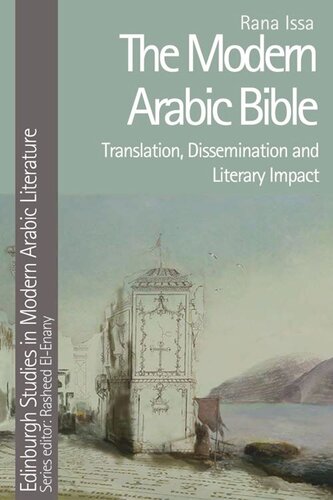

Most ebook files are in PDF format, so you can easily read them using various software such as Foxit Reader or directly on the Google Chrome browser.
Some ebook files are released by publishers in other formats such as .awz, .mobi, .epub, .fb2, etc. You may need to install specific software to read these formats on mobile/PC, such as Calibre.
Please read the tutorial at this link: https://ebookbell.com/faq
We offer FREE conversion to the popular formats you request; however, this may take some time. Therefore, right after payment, please email us, and we will try to provide the service as quickly as possible.
For some exceptional file formats or broken links (if any), please refrain from opening any disputes. Instead, email us first, and we will try to assist within a maximum of 6 hours.
EbookBell Team

5.0
58 reviewsThis innovative study compares nineteenth-century Arabic translations of the Bible to determine how it emerged as a foundational text of Arab modernity. Bible translation gained global traction through the work of Anglophone Christian missionaries, who made an attempt at synchronising translated Bibles in world languages by laying down strict guidelines and supervising the processes of translation and dissemination. By engaging with the intellectual beginnings of two local translators, Butrus al-Bustani (1819 – 1883) and Ahmad Faris al-Shidyaq (1804 –1887), as well as their subsequent contributions to Arabic language and literature, this book questions to what extent they complied with the missionaries’ strategy in practice. Based on documents from the archives of Bible societies that tell the story of two key nahda versions of the text, we come to understand how colonial pressure was secondary to the process of incorporating the Bible into the nahda project of rethinking Arabic.